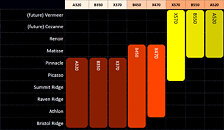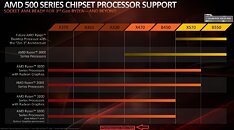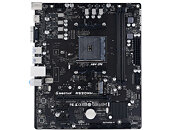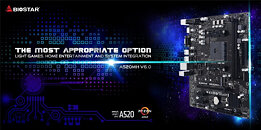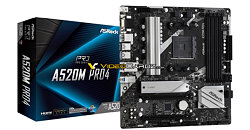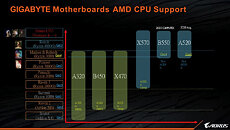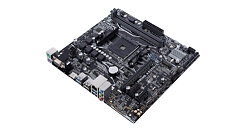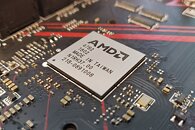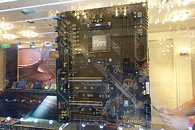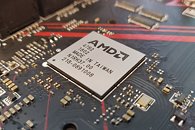
ASUS Confirms A520 Support for AMD Zen 3 CPUs; X470, B450 Support in Doubt?
ASUS today has seemingly confirmed platform support of AMD's A520 chipset for the upcoming Zen 3-based CPUs. An official ASUS slide showcases the A 520 covering the latest Renoir-based CPUs (Ryzen 4000G, based on Zen 2), alongside upcoming Cezanne (Ryzen 5000G, based on Zen 3), and Vermeer (Ryzen 4000 or 5000 series, based on Zen 3 with actual series nomenclature being up in the air).
The good news end there, as the same ASUS slide may have just dropped a bomb on consumer expectations for their current platform support. Initially, the AMD B450 and X470 chipsets weren't going to support Zen 3-based CPU solutions; however, following considerable community backlash, AMD made the decision to offer support for these platforms via a vendor-specific BIOS update. This update might entail curbed support for older AMD Zen architectures, but would at least allow for an upgrade path for users interested in keeping their AM4, current-gen motherboards. ASUS doesn't seem to be offering such Zen 3 support for its X470 and B450 motherboards, though. We will have to see if this is an ASUS-specific decision or if something is indeed afoot in the world of AMD future proofing.
The good news end there, as the same ASUS slide may have just dropped a bomb on consumer expectations for their current platform support. Initially, the AMD B450 and X470 chipsets weren't going to support Zen 3-based CPU solutions; however, following considerable community backlash, AMD made the decision to offer support for these platforms via a vendor-specific BIOS update. This update might entail curbed support for older AMD Zen architectures, but would at least allow for an upgrade path for users interested in keeping their AM4, current-gen motherboards. ASUS doesn't seem to be offering such Zen 3 support for its X470 and B450 motherboards, though. We will have to see if this is an ASUS-specific decision or if something is indeed afoot in the world of AMD future proofing.
